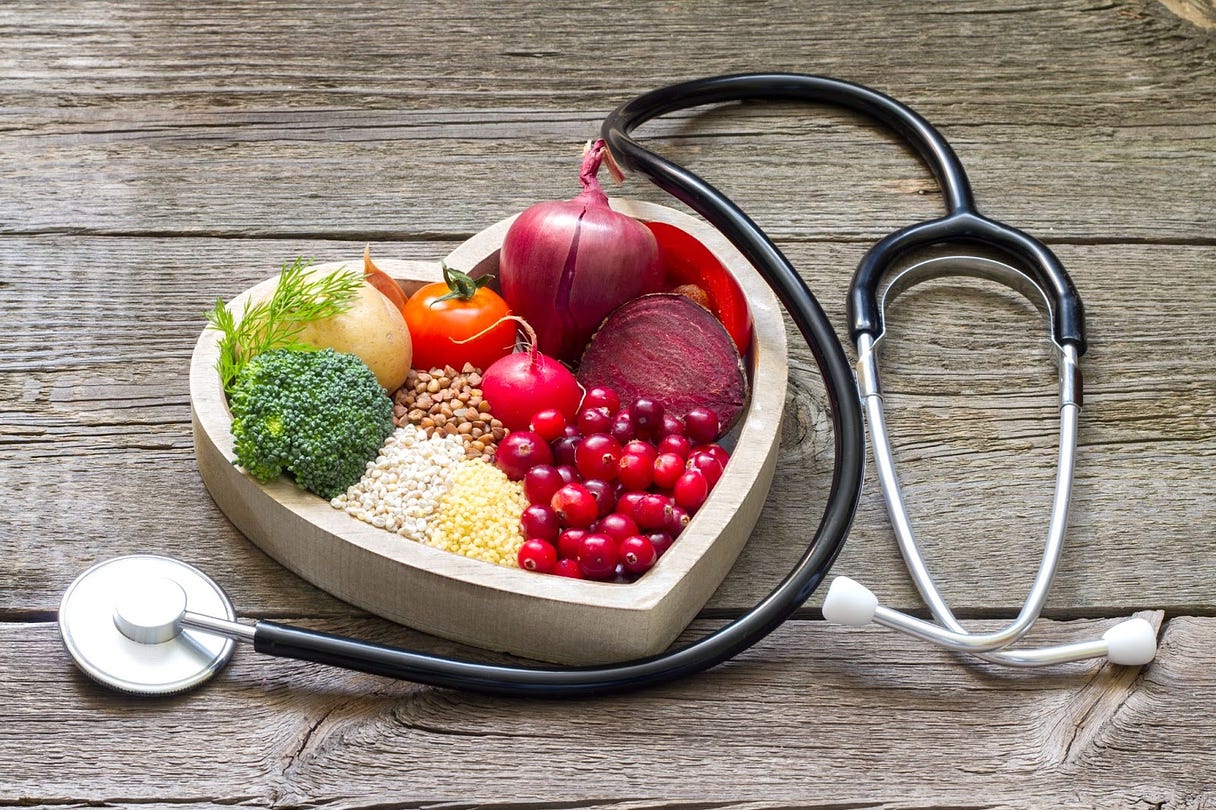Food-As-Medicine trial ‘fails,’ Latest from the Diet-War Frontlines, and more.
“Food-As-Medicine” Trial Fails to Improve Health
The current “Food As Medicine” movement harkens back to the adage “Let Food be Thy Medicine,” attributed to Hippocrates, yet maybe even the ancient Greeks sometimes wondered, ‘sure, but which foods?’ Fruits and vegetables, whole grains and lean proteins, aka, the cornerstone of the U.S. Dietary Guidelines, is now the usual answer, yet many experts believe that Americans, especially those of low socio-economic means, don’t have the knowledge or resources to follow this advice. For Food-As-Medicine advocates, one solution is to improve access, mainly to fruits and vegetables, by delivering free food— directly to people, in their homes.
The concept is championed by a powerhouse alliance of top-rank government, public health and industry actors. Rooted in a long history, the current movement started in about 2018, with a “Food As Medicine” working group on Capitol Hill. This led to a 2022 White House conference on Hunger, Nutrition & Health, resulting in a report recommending “food as medicine interventions for people with diet-related diseases.” In that same year, the Aspen Institute published its first “Food is Medicine” action plan, with a heady list of advisors. There’s also been “Food as Medicine” summits occurring nationwide since 2021. I (NT) have written with some skepticism about these efforts since the food industry has been central to virtually all of them.
 |
From a scientific perspective, though, there’s the not-so-small problem that the Food-As-Medicine concept has barely been tested, and the few randomized, controlled clinical trials (RCTs) to date have yielded mixed results. This dearth of evidence was acknowledged in the 2022 Aspen report; An effort to get Congress in 2023 to spend $2 million on a “Food As Medicine” pilot program failed.
Then, on December 26 2023 – the day after Christmas always being a good day to bury bad news – results from the latest RCT on the concept were published in JAMA Internal Medicine. They were, to put it politely, not as expected. Five hundred “food insecure” adults with type 2 diabetes (HbA1c of 8.0% or higher) had been randomly assigned either to a control group that got “usual care” or an intervention group that received a year-long comprehensive program of dietitian consultations, nurse evaluations, health coaching, diabetes education and the delivery of “healthy” groceries for 10 meals per week for the entire household.
The groceries included “whole grains, fruits, and vegetables (with an emphasis on fresh as opposed to canned and frozen), lean proteins and low-fat dairy products, as well as staple items including salad dressing, cereal, brown rice and bread that are tailored to patients’ needs in consultation with the dietitian.” The dieticians used the American Diabetes Association “plate method,” which advises that one quarter of the plate be starches (carbohydrates).
If the food-is-medicine concept worked, the group getting free groceries along with the consultations and coaching should have seen their health improve noticeably. Yet they did not… at all. Their average blood sugar (the study’s primary outcome) remained no better than the controls; their LDL-cholesterol and HDL-cholesterol appeared, if anything, to worsen.
The study authors – public policy researchers, not nutritionists – relied on the dietary approach recommended to them by the large healthcare system with which they partnered for the study. “We are interested in health delivery systems,” Joseph Doyle, a professor at the Sloan School of Management at MIT, stressed in an interview. “I was hoping we would show improved outcomes, but the way to make progress is to do well-randomized trials to find out what works.” We agree with Doyle, of course, and his experiment should put to rest some of the chatter that proper clinical trials in nutrition can’t be done.
Yet Doyle’s trial can’t inform public health strategies if its results are ignored. Despite a news item on the study in JAMA this week, the “null results” have had little noticeable effect so far on the Food-As-Medicine juggernaut. In February, the Department of Health and Human Services hosted its first “Food As Medicine” summit, with three public-private partnerships already in place, while a dozen projects are underway at the new, partially industry-funded Food Is Medicine Institute at Tufts University.
Lamentably, until these programs better understand which foods are truly medicine, they will follow in the footsteps of other non-evidence-based programs, like listing calorie counts on menus, i.e., they’re very likely to fail…

Continue reading this post for free, courtesy of Nina Teicholz.
| Claim my free post |
Published by


